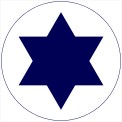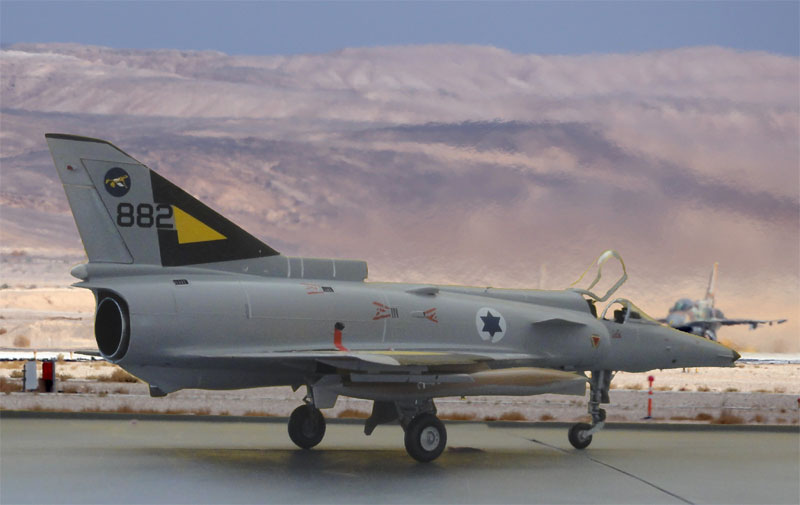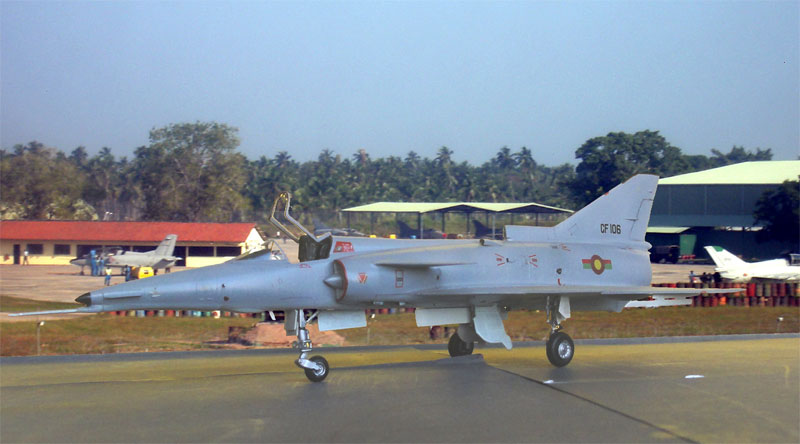[ Page 2 ]
... continued from page 1....
[ 2 ]
Another Hasegawa kit in a
similar fashion as noted on page 1 was made, this time for a Kfir C.2 with a Israeli
Air Force air defense grey scheme.
The kit was assembled as per instructions. Some details were added in the wheel bays from scrap and stretched sprue. The gear doors have some inside details and sometimes the main nose wheel bay door is seen closed.
The clear windshield #17 did not fit flush, so I had to remove a bit of the cockpit instrument coaming. This is no problem and it was painted black. I added for the Kfir C.2 a few small scopes on the spine and below the lower aft fuselage.
The trailing edge flaps edges, ailerons edges and rudder were cut in with a razor saw, this looks much better on any model.
The scheme is very peculiar as it was the only grey IAF Kfir C.2 according to the ISRA book with the yellow-black edged recognition tri-angles applied.
Colours airbrushed were an overal
FS36375 using Gunze Sangyo 308 acrylic and patches on the upper surfaces
of FS36320 using Gunze Sangyo 307. The yellow-black tri-angles were decals
retrieved from a Hasegawa Kfir kit. I pre-painted the black edges to ensure
that the decals and pre-painted areas are fully covered.
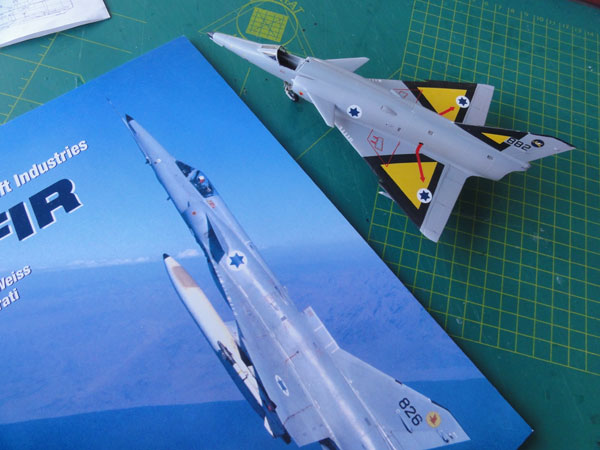
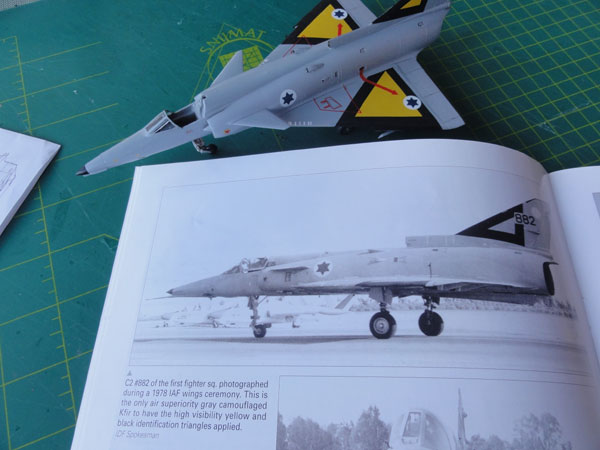
The model was decalled after getting a gloss undercoat to prevent "silvering" with the usual technique...
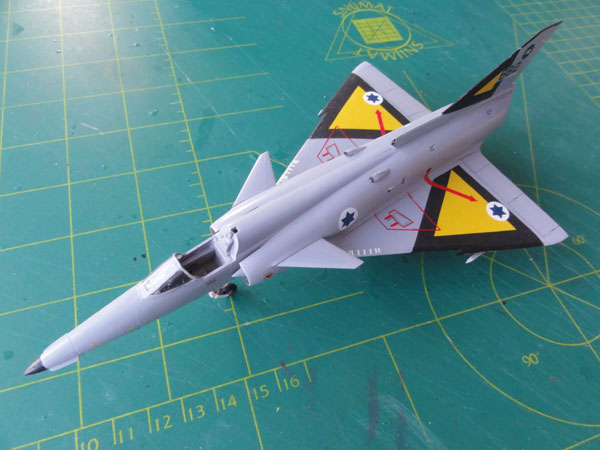
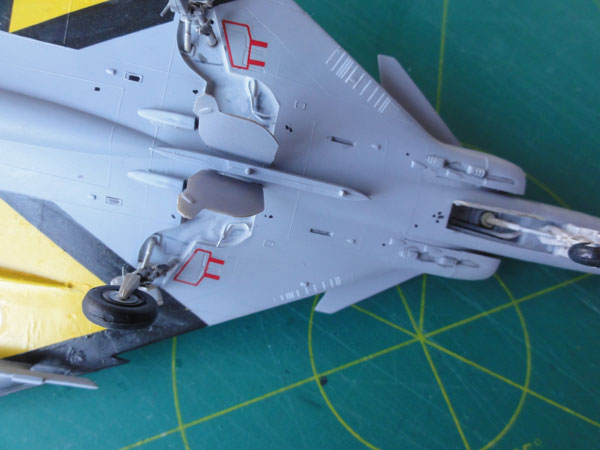
Some parts like the flap hinge fairings
needed a yellow paint, using Gunze Sangyo 329 yellow acrylic. The Hornet
squadron insignia was retrieved from a Microscale IAF set 72-220.
The landing gear and pylons were installed after the large lower decals were applied. Yellow touch up work was done with a paint brush using Gunze Sangyo yellow H329 acrylic.
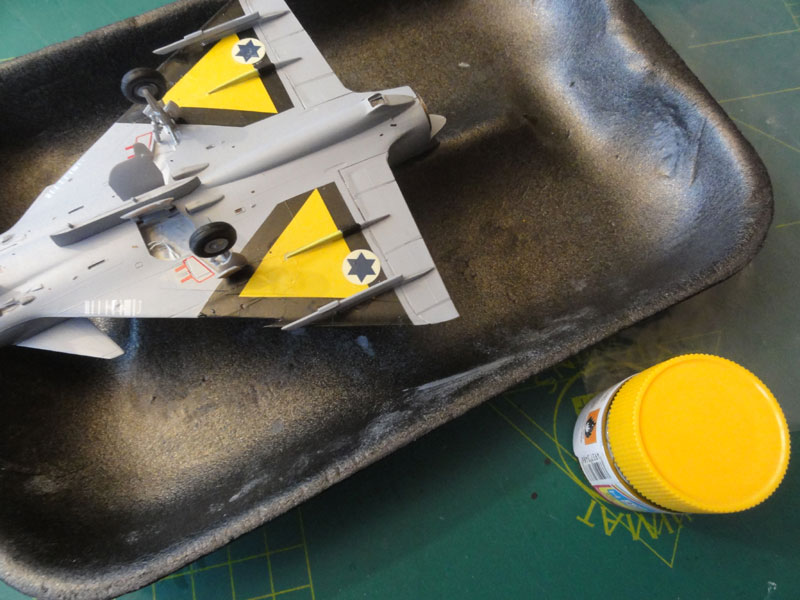
In the various panels and edges some wash was added using PROMODELLER wash. Next, the model got a semi-gloss coat to get an even sheen and protect the decals.
I added a couple of fuel tanks from
a Hasegawa Kfir and these got a desert camouflage. Often, tanks were swopped
on operational aircraft.
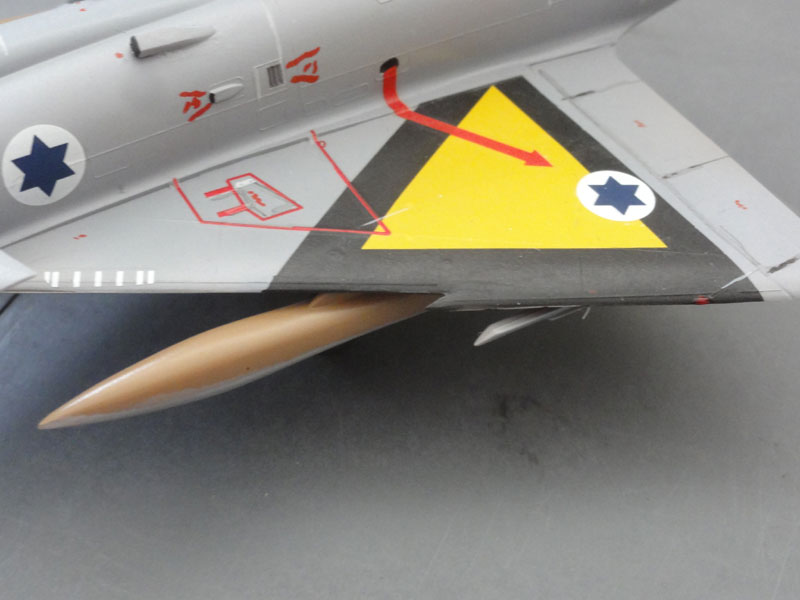
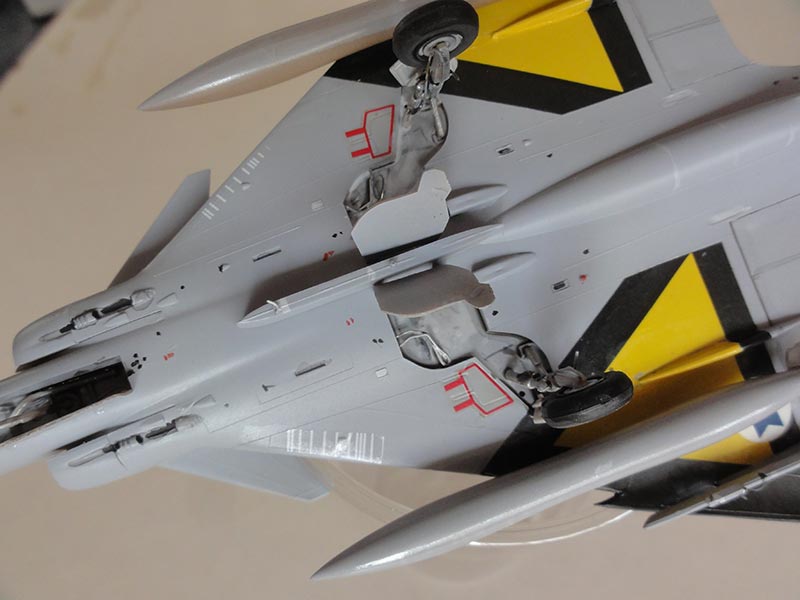
Canopy was
installed as well and that completed the model.
This Kfir C.2
with code ' 882" was used in May 1977 by the Israeli
Air Force "Hornet" squadron. They were the first to get the C.2. Soon
it proved that the tri-angles were not really needed and other aircraft
did not get these markings anymore.
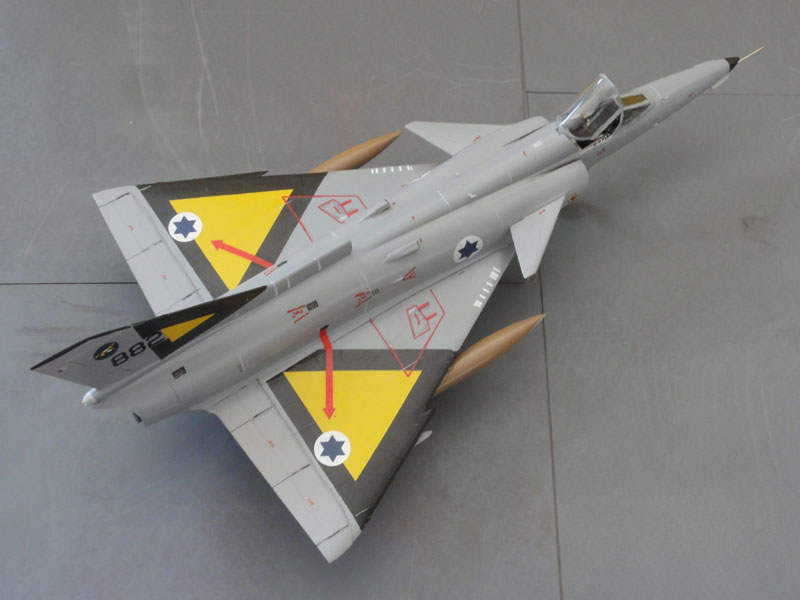
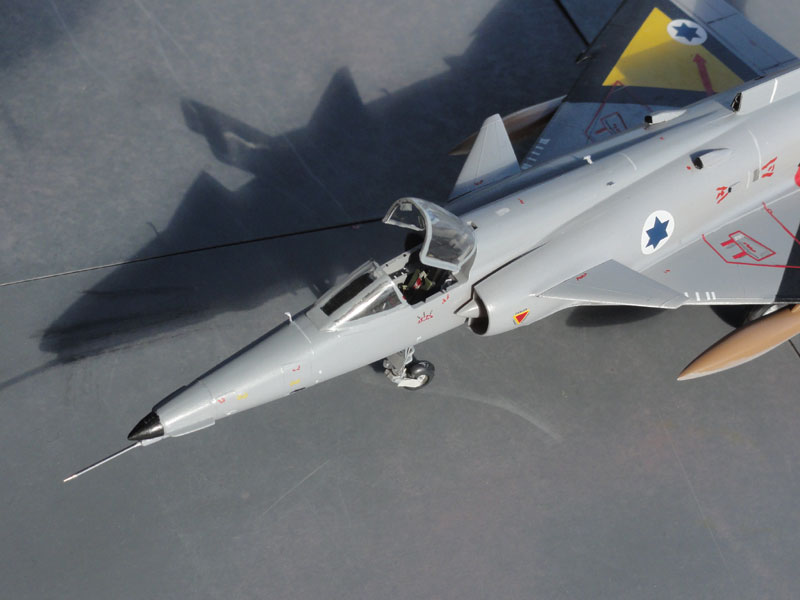
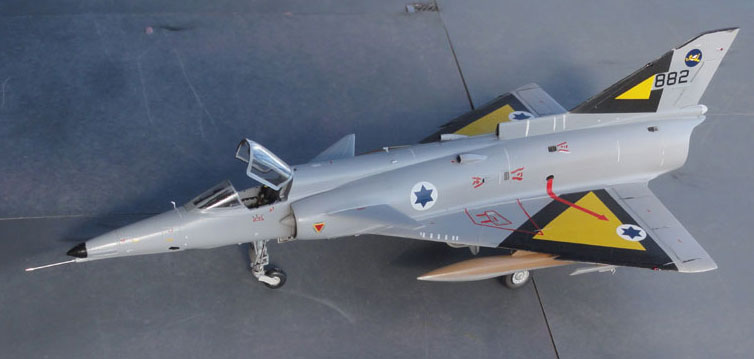
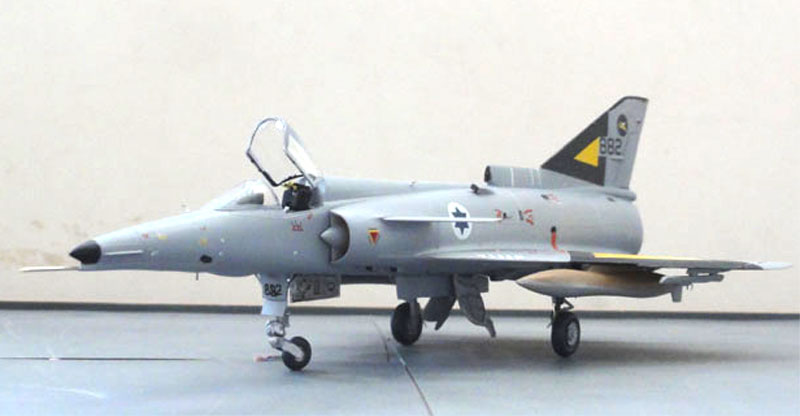
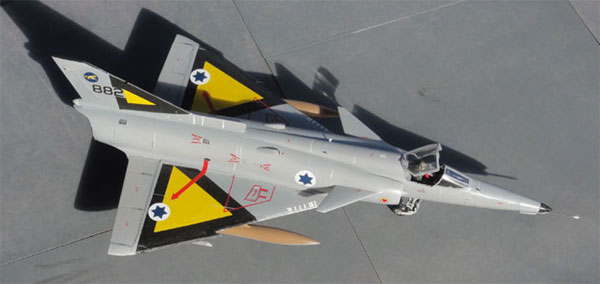 .
.
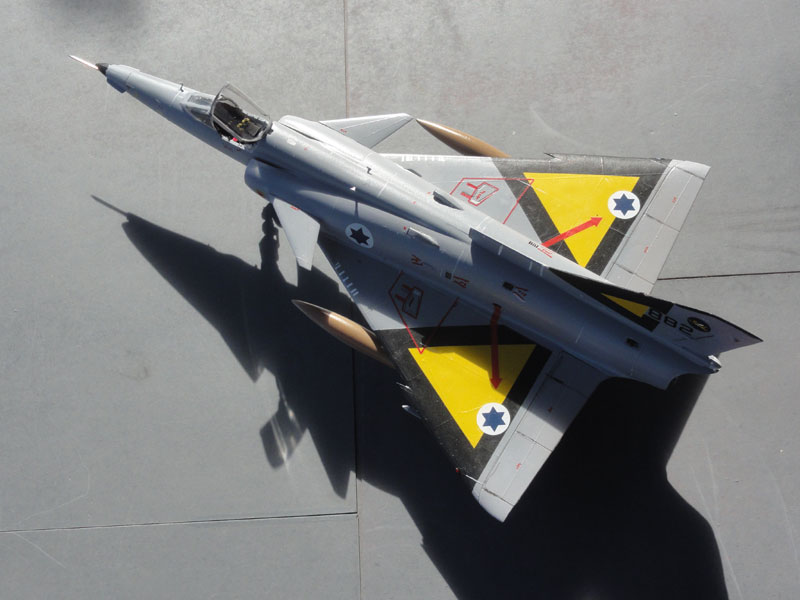
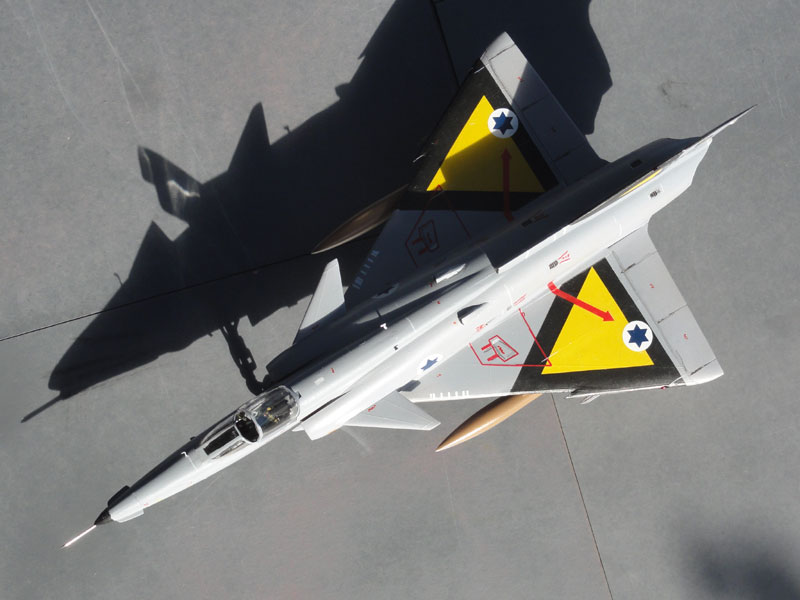
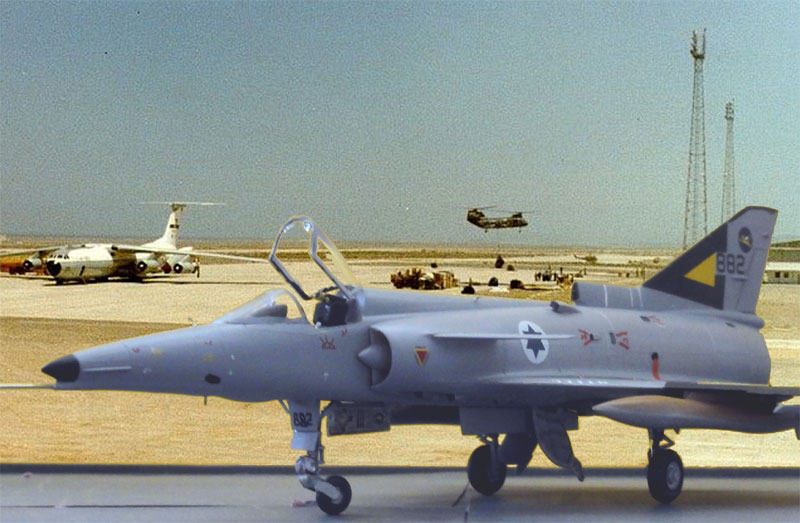
page 2
page 3

[ 3 ]
Another Hasegawa kit in a similar fashion as noted above was made, but now as a Kfir C.2 in a scheme of the Sri Lanka air force.
The kit got an overall colour of FS 36375 using Gunze Sangyo 308 acrylic with the airbrush.
Roundels were sourced from a very
old
KANGA MiG-15 decal set 72017 as these national insignia look
the correct size. These very old decals needed first a coat of MicroScale
decal film to prevent breaking up.
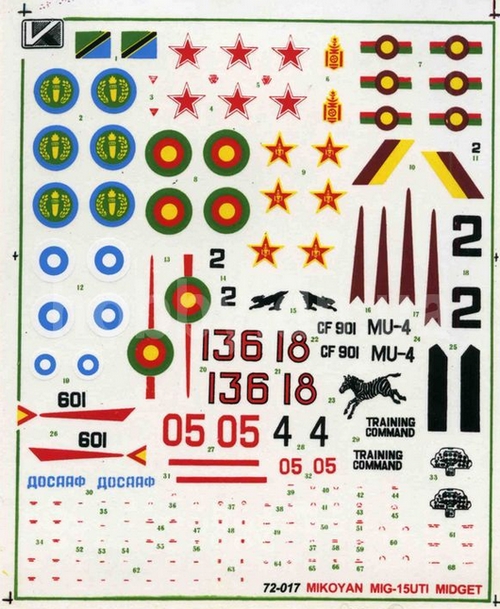
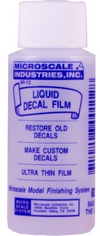
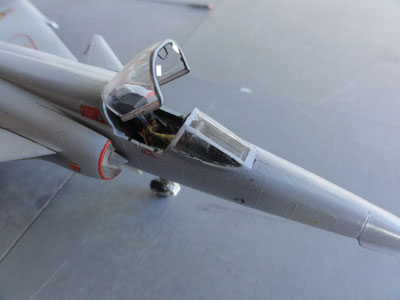
The remainder of the kit was finished
as described for the other Hasegawa kits.
![]()
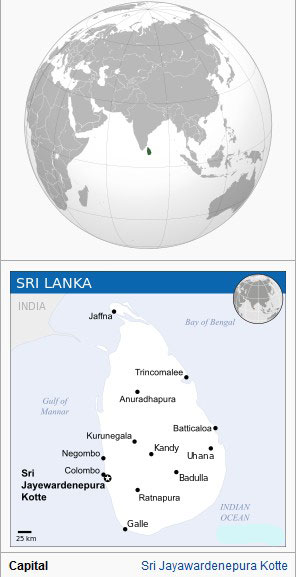 ....
.... ..
.. ...........
...........
[area: 65,610 sq.km | population: 22,3 million | capital: Sri Jayewardenepura Kotte | GDP nominal < 3,000 USD per capita ]
The Sri
Lanka Air Force (SLAF) was founded in 1951 as the Royal Ceylon Air
Force (RCyAF) with the assistance of the Royal Air Force (RAF). It
started with many English aircraft types like the Oxford, Heron and in
1959 Vampire jets arrived just like the Jet Provost. In the 1970s Soviet aircraft arrived
like the MiG-15 UTI trainers, followed by the MiG-17 and some Bell and
Kamov helicopters. It seems that
the Sri Lanka Air Force
(SLAF) bought six second hand Kfir C.2s
and a single TC.2 from Israel in 1995 – 1996. About 10 years
later
additional Kfirs were acquired like the C.2 and four C.7. About a dozen
aircraft were/are used by No. 10 "Fighter" Squadron at SLAF base
Katunayake.
The aircraft were used in the conflict with the Tamil Tigers. Current
combat aircraft are a few Kfirs but also Shenyang F-7 and MiG-27.
Helicopters are also widely used. 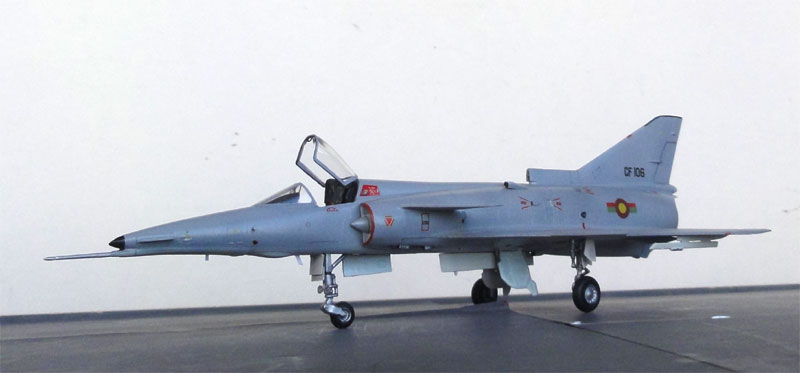
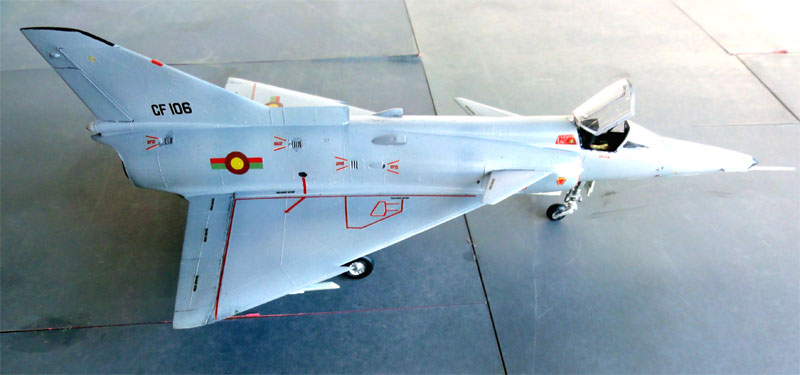 .
.
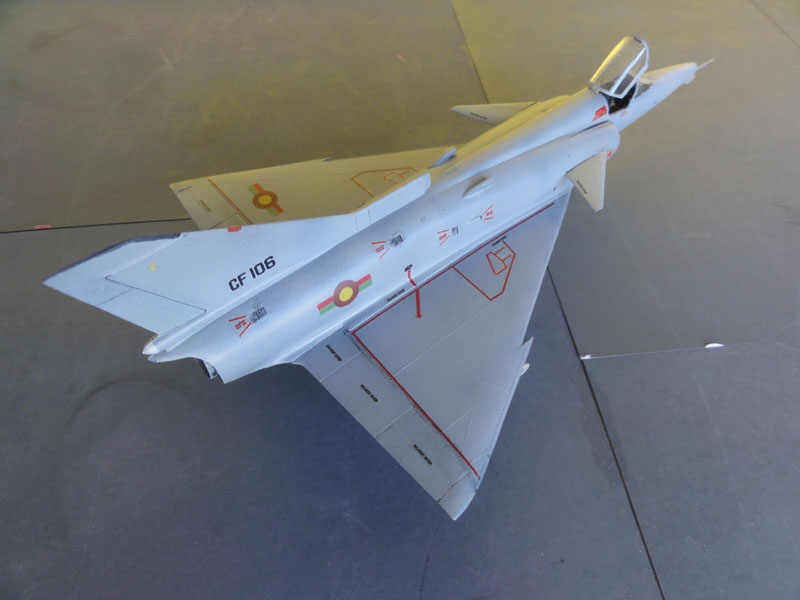
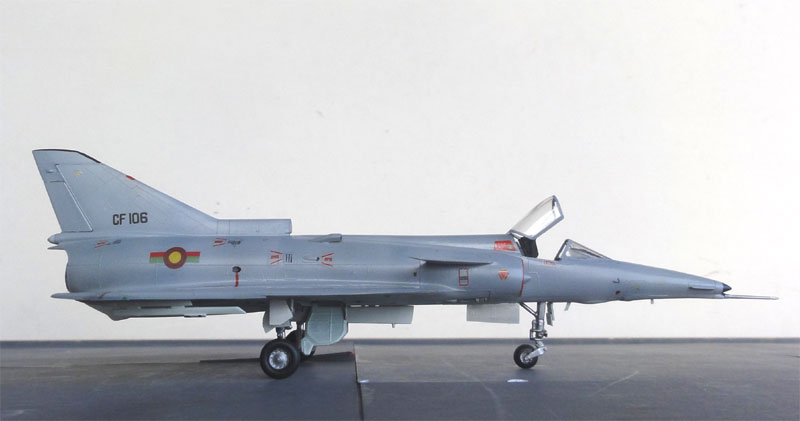


(c) Copyright Meindert "designer"/ All rights reserved. Your comments are welcomed by webmaster
Created this page
March 28, 2016
